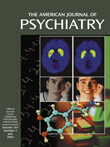We have long been aware that neither our perceptions nor our conceptions are innocent; some theoretical foundation, conscious or unconscious, formulated or inchoate, underlies all our thoughts. It is the purpose of Dr. Hersch, a practicing Canadian psychiatrist, to make explicit the philosophical underpinnings of a wide range of approaches to psychiatry and psychotherapy and to propose another model, based on Husserlian and Heideggerian phenomenology, which he believes represents a substantial advance on schools based on an outmoded Cartesian view of the world, from behaviorism through the variants of psychoanalysis.
This is a serious book, clearly the product of years of thought and extensive scholarship. Hersch develops and elaborates at length what he terms a “hierarchical model of levels of theoretical inquiry” ranging from ontology through both general and “field-specific” epistemology to psychology. He employs this model to assess and criticize the several therapeutic approaches he seeks to evaluate, pointing out the unspoken assumptions and logical flaws he detects in each. He devotes a good deal of attention to explicating methods of validation and assessments of the value of truth; these sections alone are worthy of serious attention. Hersch is witheringly and appropriately critical of the ostensibly “atheoretical” approach of the formulators of the DSMs.
To illustrate: Freudian psychoanalysis, Hersch contends, is founded on a Cartesian-dualist ontology that is realist, objectivist, and wedded to a correspondence theory of truth. Although Freud’s subject matter was subjectivist, his epistemology was objectivist in that it was based on a belief in the existence of objective facts accessible to scientific inquiry and interpretable as such. Freud’s psychology laid emphasis on intrapsychic phenomena to the exclusion of other sorts of mentation. Hersch finds logical and epistemological inconsistencies here and suggests that Freud must have seen them, too; thus his expressed disdain for philosophy in general.
Hersch emerges from these sometimes repetitive and often rather abstract reflections with a method he calls (not very fortunately) “beams of light through time,” which is essentially an interactional, non-Cartesian model, neither totally objectivist nor subjectivist, that concentrates on the interactive processes of the patient-therapist dyad and is hermeneutic in its approach to truth. The distinctions between Hersch’s and other intersubjective approaches are often rather subtle; of the different familiar models, perhaps that of Hans Loewald is the most comparable.
Clinical illustrations are few and far between. The book is not easy reading and requires (or did for me, at least) frequent back-checking to keep one’s bearings. I suspect that the general run of clinicians, content to leave their ontological and epistemological roots unexplored, will find it somewhat remote from their daily activities. For those who are curious about such matters or who wonder what contribution Heidegger, despite his Nazi sympathies, might bring to their intellectual and professional development, this book will repay the time and study invested.

